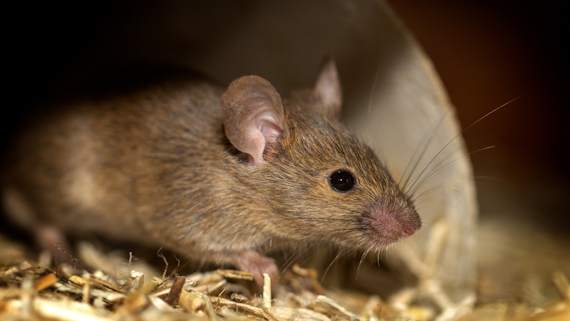Genynnau wedi’u hargraffu yng ‘nghanolbwynt magu plant’ yr ymennydd yn pennu a ydy llygod yn rhieni da ai peidio
25 Hydref 2023

Cardiff University study identifies Magel2, a novel imprinted gene that affects nesting behaviour.
In mice, there is some evidence that an unusual epigenetic phenomenon in mammals called genomic imprinting impacts parenting behaviour. Mammals inherit two copies of each gene – one from each parent – and usually, each copy is expressed equally in the cell. With imprinted genes, however, only one copy is expressed, either the one inherited from the father or the mother.
To confirm that imprinted genes play a role in parenting, Isles’ team used sequencing data from neurons in the parenting hub in the hypothalamus of mice. They found that imprinted genes are especially common among the genes expressed in these cells, including Magel2, a novel imprinted gene that was not previously linked to parenting. Further experiments showed that mice lacking an active form of Magel2 were inattentive parents that made subpar nests.

"Our study demonstrates the importance of imprinted genes as a group in neural circuitry that controls parenting behaviour in mammals. These findings imply that the maternal and paternal genomes may differentially manipulate parental care for their own ends, and thus shaping the evolution of parenting behaviour in mammals."
The new findings show that genomic imprinting plays an important role in controlling parenting behaviour in mice. Interestingly, previous research has shown that if mouse pups lose the paternal version of Magel2, they make fewer ultrasonic vocalizations, which they use to get their mother’s attention. Together, these results support the idea that genomic imprinting has evolved to coordinate parenting activities between a mother and her pups. This idea, that imprinted genes expressed in the parent and the offspring, and even the fetal placenta, regulate the provision and solicitation of parental care is explored in detail in a review article by the Isles group and their collaborator, Rosalind John (Cardiff University), published this month in Nature Reviews Genetics.
To read more about this work, see the full paper on PLOS Genetics: The parenting hub of the hypothalamus is a focus of imprinted gene action
